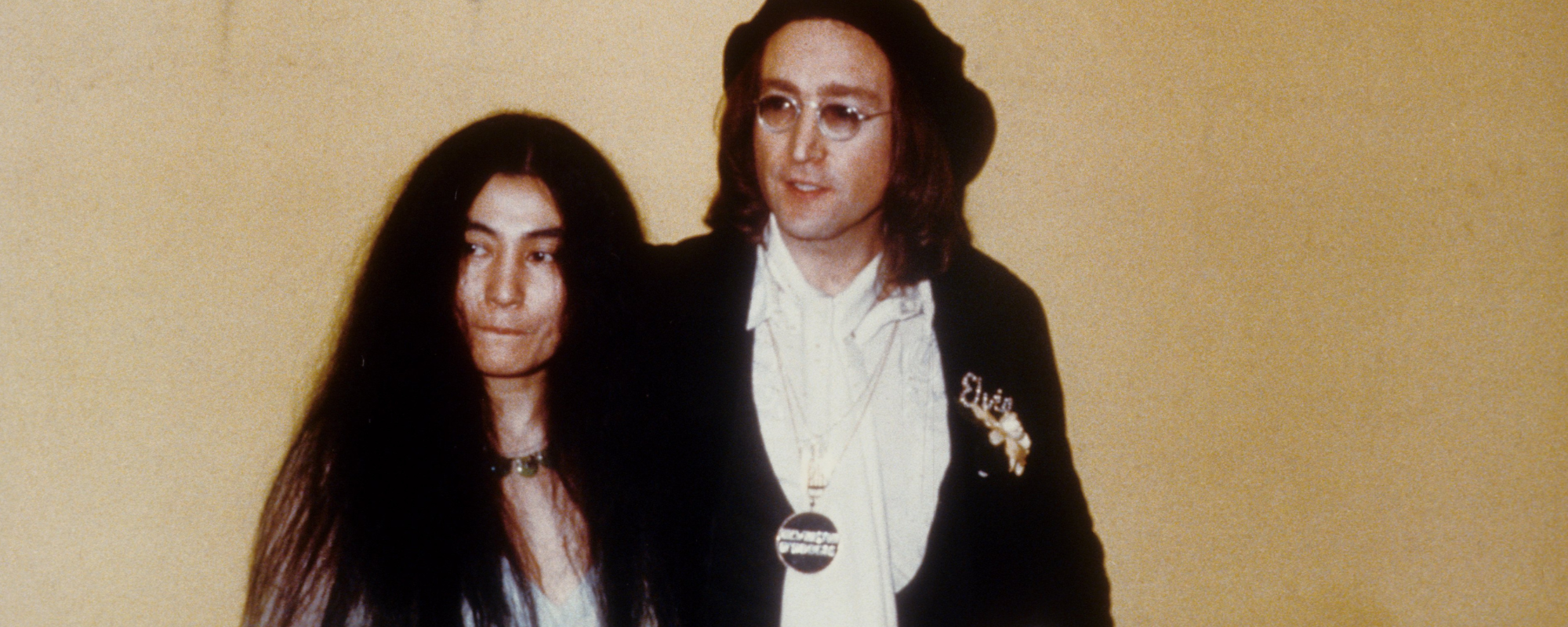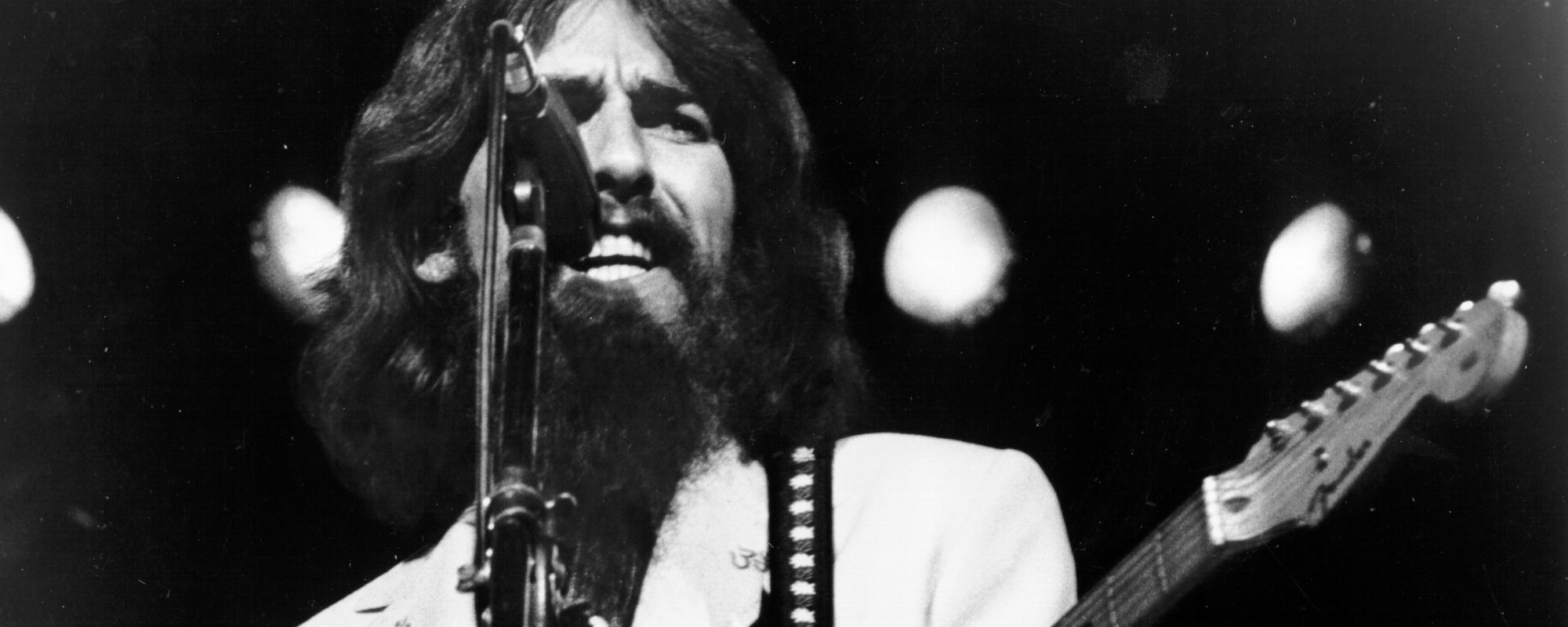“I was born to be on the stage,” Peter Frampton tells American Songwriter. “That’s where I’m the most comfortable in life, I think. I love playing guitar, and I love doing shows, and I love seeing people’s reactions. In fact, next year will be my 60th year of touring—I started when I was 14.”
Videos by American Songwriter
Frampton is calling from the midst of a string of North American tour dates, which he says are going “fantastically well.” He and his band routinely deliver two-and-a-half-hour sets, playing songs from Frampton’s early days with the band Humble Pie, his many solo hits, and up through selections from his more recent releases.
He knows he’s expected to play his most famous songs at every show—after all, fans around the world think of “Show Me the Way,” “Baby, I Love Your Way,” and “Do You Feel Like We Do” as cultural touchstones. He says he still enjoys performing them, even though he’s done so for five decades now.
“I get off on the audience reaction to those songs because so many people have told me what those songs mean to them,” he says. “Some [stories] are so poignant—people have played this song at certain occasions, good or bad, and it’s helped them. So if my music has helped people, gosh, that’s the best outcome, isn’t it?”

It’s especially meaningful for Frampton to be on the road now because not so long ago he’d assumed his touring days were completely behind him. In 2019, he revealed he’d been diagnosed with inclusion body myositis (IBM), a rare and incurable degenerative muscular condition. That summer, he undertook what he told fans would be his farewell tour.
“I knew I had the IBM, the muscle disease, and I knew that my fingers were going to be affected,” he says. “When we did the Finale Tour, at the end, I noticed some differences. And I had always said, ‘I don’t want to go out and play live if I’m not on my ‘A’ game.’ Well, I lied!” He laughs and adds, “I think I’m still on my ‘A’ game—but I’ve just adjusted what I play.”
He points to one of his major influences, the legendary jazz guitarist Django Reinhardt, as a key inspiration for helping him change his way of thinking about his situation. “Django Reinhardt only had two fingers and a thumb on his left hand, so if he can play with two fingers, and play better than I’ve ever played, I think I can handle it right now.”
Even so, Frampton is realistic: as he adapts his guitar playing as necessary to ease the muscle pain that his disease causes, he sees how his condition increasingly affects him. “People say they can’t notice the difference, but I notice the difference,” he says. As a result, he knows there may come a day when he simply cannot perform anymore.
At the time of this conversation, Frampton was days away from performing in Nashville, his adopted hometown, at the iconic Ryman Auditorium. This was the final confirmed date of his Never Say Never Tour, and it was unknown if there would be more shows down the line or not. “I can’t really say right now,” he says. “I mean, yes, I would love to, and I hope that we do. But news will be forthcoming.”
He’s also willing to do one-off shows as the occasion arises, as he proved when he joined Sheryl Crow for her performance as she was inducted into the Rock & Roll Hall of Fame during a ceremony at New York City’s Barclays Center on November 3, 2023. Crow also lives in Nashville, so he knew her from seeing her around town and attending her shows.
“One morning, I got a text from [Sheryl] saying, ‘I’m getting inducted into the Rock & Roll Hall of Fame. Would you do me this huge favor and sit in with the band?’” He instantly said yes. “I was thrilled that I was able to do it, and I was more than thrilled to be part of honoring her because I’ve been a fan for decades. She’s just wonderful. Very lovely lady. It was a pleasure.”
He showed support for another legendary female artist when he became a guest musician on Dolly Parton’s new album, Rockstar, which was released in November. When he heard she was recording it, he reached out with an offer to donate a guitar solo to the project, if it was wanted. Parton’s producer immediately responded with an even better option: Parton would cover Frampton’s song “Baby, I Love Your Way.”
Frampton and his band cut the track, which he sang the whole way through. He sent that to Parton, telling her to add her vocals and subtract his in whatever way she saw fit. He is thrilled with the results. “She sent back this wonderful vocal where she sang with me, she sang on her own, she harmonized with me—she brought a new energy to the song, which floored me. It was just wonderful.”
With that finished, Frampton reminded Rockstar’s producer that he was still willing to do a guitar solo, too—which led to his inclusion on the cover of “Let It Be,” which features not only Parton and Frampton, but also Paul McCartney, Ringo Starr, and Mick Fleetwood. “It doesn’t get any better than that,” Frampton says.

Of course, none of these opportunities would be forthcoming if Frampton hadn’t long ago earned the admiration of such luminary musical peers. He first gained respect for his singing and guitar playing as a member of the band Humble Pie, which formed in the late 1960s and had a number of hit singles, particularly in their native U.K., starting in the early 1970s.
As their fame grew, though, Frampton increasingly realized he was evolving into a musician who had something singular to express. “One day, we were recording with Humble Pie, and we were doing this number ‘Stone Cold Fever.’ I had brought in the original riff, which then inspired us as a band to finish it as a song. There’s a section at the end which, for Humble Pie, is a little jazzy, almost. It was a solo, for me. So it dawned on me: ‘I think I’ve just found my style.’”
He went on to release a string of solo albums, including Wind of Change (1972), Frampton’s Camel (1973), and Frampton (1975). These three albums just received a deluxe vinyl box set reissue via Intervention Records in 2023.
When Frampton received test pressings for these reissues, he was deeply moved as he revisited these songs. “I picked Frampton’s Camel to put on my turntable first,” he says. “It was very emotional for me to hear this. It was recorded in 1972, and that time period was about the breakup of my first marriage, so it was very poignant, the lyrics and everything. I got emotional before I got to the end of Side One. So it was very powerful.”
When he listened to the other two albums, he got the same feeling, particularly when he put on his solo debut. “I mean, Wind of Change was my very first solo record after Humble Pie, and I had not a clue what I was doing at that point. But I treasure that it’s encapsulated, and the new vinyl brings it to life again, for me and so many other people.”
When it comes to nostalgia, most fans would likely cite Frampton Comes Alive! as the one that triggers the most memories. Released in 1976, the double live album reached the top spot on the U.S. album charts and went on to become the best-selling album of the year. It remains one of the most successful live albums ever released.
Frampton has gone on to release 18 studio albums so far, and he can see how his distinctive sound has continued to evolve: “It changes. But I do have a distinctive tone and way of playing, and I’m thrilled that other guitarists think that they can spot me after a couple of notes. That’s so great that that happens.”
Even though he’s established himself as one of the most recognizable rock musicians of all time, Frampton says he still doesn’t have a set formula for his songwriting. His approach is, he says, “kind of half and half. I don’t just start with the music or just start with the lyrics. They kind of come at the same time.
“Usually, I’m writing down titles and things I hear people say, which will turn into ideas for songs,” he continues. “I’m always writing down jumping-off points, lyrically. It could be anything. It could be something someone says in a soap opera, or if I’m reading. The inspiration comes from lots of different places. But every day, I write. It’s my way of practicing. I start practicing, and then I start putting chords and melodies together. Once I’ve come up with a verse and a chorus, then I’ll go to my notes—I keep it all in notes on my iPhone—and I say, ‘What would fit this kind of melody?’”
He says he never panics when he hits periods when he can’t come up with good material. “I wait for it and just get on with my life, spend more time with my kids or whatever, and just try and not think about anything and just live,” he says. “Things happen, and all of a sudden one day, you’re writing down ideas again.”
These days, he’s in a prolific phase as he works on writing and recording another studio album. This time, he’s mainly handling the songwriting duties by himself. “I wanted to go back to that old template of not always thinking I need to write with someone—which I enjoy, too, don’t get me wrong—but so far, it’s turning out that way. I’m really pleased so far,” he says.
This optimistic attitude seems to extend to the way Frampton regards his career overall, and it’s certainly reflected in the title he chose for his current run of shows: “This is the Never Say Never Tour—I coined that phrase at the end of the Finale Tour by saying, ‘Never say never!’”
It is a motto Frampton seems determined to bear in mind from now on.
Main image by Austin Lord/ Courtesy Sacks & Co.












Leave a Reply
Only members can comment. Become a member. Already a member? Log in.